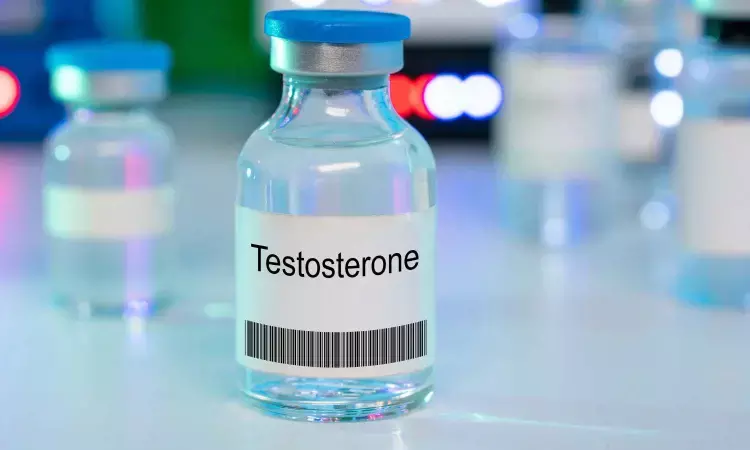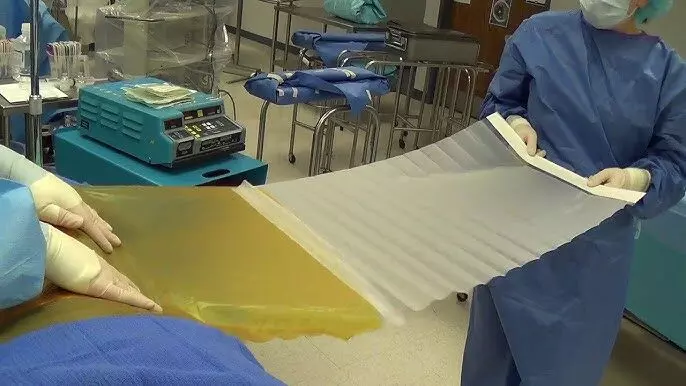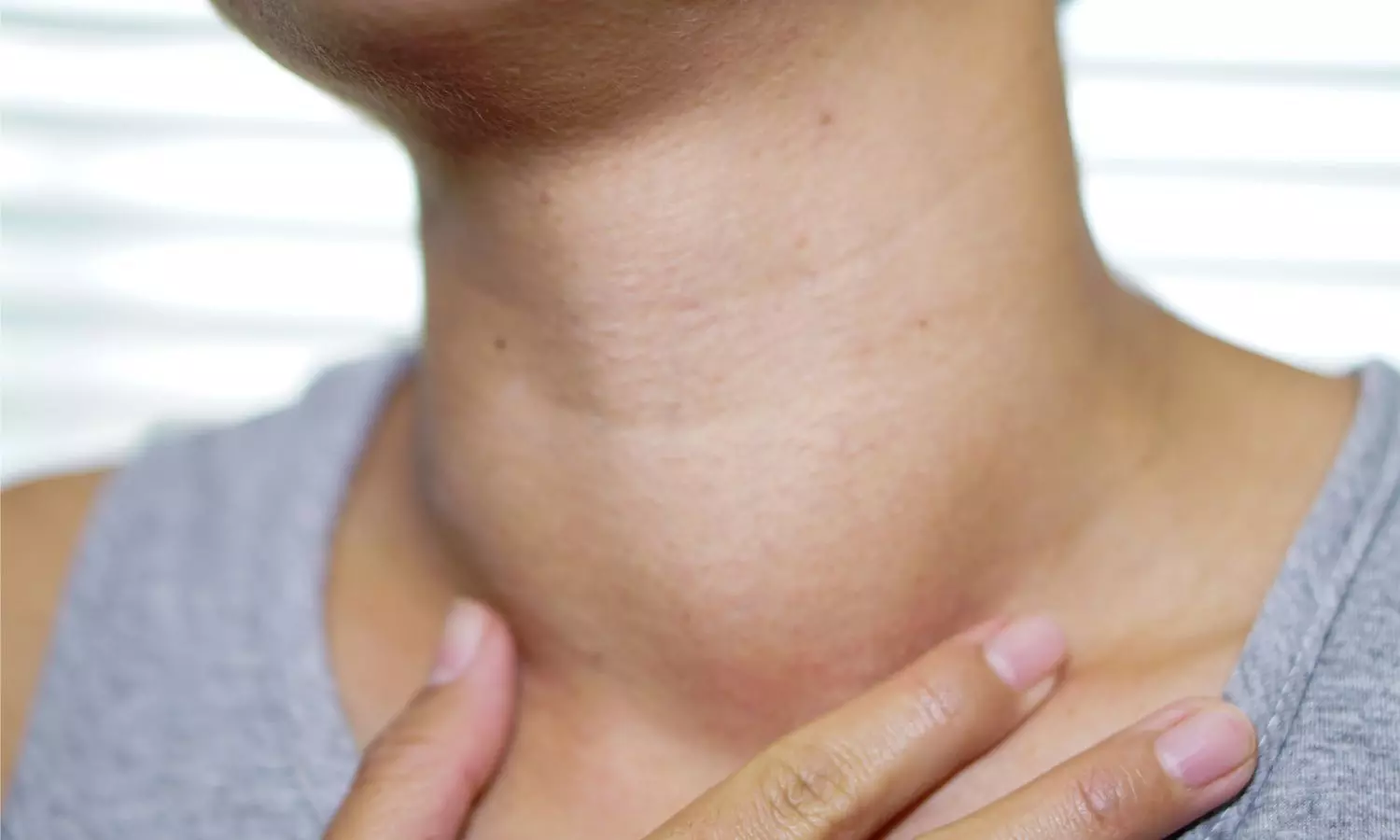- Home
- Medical news & Guidelines
- Anesthesiology
- Cardiology and CTVS
- Critical Care
- Dentistry
- Dermatology
- Diabetes and Endocrinology
- ENT
- Gastroenterology
- Medicine
- Nephrology
- Neurology
- Obstretics-Gynaecology
- Oncology
- Ophthalmology
- Orthopaedics
- Pediatrics-Neonatology
- Psychiatry
- Pulmonology
- Radiology
- Surgery
- Urology
- Laboratory Medicine
- Diet
- Nursing
- Paramedical
- Physiotherapy
- Health news
- Fact Check
- Bone Health Fact Check
- Brain Health Fact Check
- Cancer Related Fact Check
- Child Care Fact Check
- Dental and oral health fact check
- Diabetes and metabolic health fact check
- Diet and Nutrition Fact Check
- Eye and ENT Care Fact Check
- Fitness fact check
- Gut health fact check
- Heart health fact check
- Kidney health fact check
- Medical education fact check
- Men's health fact check
- Respiratory fact check
- Skin and hair care fact check
- Vaccine and Immunization fact check
- Women's health fact check
- AYUSH
- State News
- Andaman and Nicobar Islands
- Andhra Pradesh
- Arunachal Pradesh
- Assam
- Bihar
- Chandigarh
- Chattisgarh
- Dadra and Nagar Haveli
- Daman and Diu
- Delhi
- Goa
- Gujarat
- Haryana
- Himachal Pradesh
- Jammu & Kashmir
- Jharkhand
- Karnataka
- Kerala
- Ladakh
- Lakshadweep
- Madhya Pradesh
- Maharashtra
- Manipur
- Meghalaya
- Mizoram
- Nagaland
- Odisha
- Puducherry
- Punjab
- Rajasthan
- Sikkim
- Tamil Nadu
- Telangana
- Tripura
- Uttar Pradesh
- Uttrakhand
- West Bengal
- Medical Education
- Industry
Urinary Iodine Concentration inversely and independently associated with testosterone levels

According to recent reports from the World Health Organization, iodine intake, crucial for thyroid function, is sufficient or even excessive in numerous countries due to iodization policies. While this may seem beneficial for addressing iodine deficiency, concerns have emerged regarding the potential adverse effects of excess iodine on communities. A groundbreaking study has delved into the intricate relationship between iodine exposure and testosterone levels in men, shedding light on a previously unexplored aspect of reproductive health. The study revealed that low urinary iodine concentration is an independent factor causing increased testosterone levels and hence men should be cautioned while taking iodine supplementation.
The study results were published in the journal JAMA Network Open.
The study, drawing on data from the National Health and Nutrition Examination Survey (NHANES), a comprehensive survey of the US population, aimed to investigate the association between urinary iodine concentration (UIC) and testosterone levels. The rationale behind this inquiry lies in the identification of iodine transporters in extrathyroidal tissues, including the testis, raising questions about the impact of iodine on male reproductive hormones.
In a cross-sectional analysis encompassing five NHANES cycles spanning from 1999 to 2002 and 2011 to 2016, the study focused on 11,433 male participants with available data on total testosterone (TT). After excluding individuals with missing UIC data and those below 18 years old, 2,934 men formed the basis for the investigation. Adhering to the Strengthening the Reporting of Observational Studies in Epidemiology (STROBE) reporting guidelines, the levels of total testosterone (TT) and urinary iodine concentration (UIC) were examined through inductively coupled plasma dynamic reaction cell mass spectroscopy and isotope dilution high-performance liquid chromatography–tandem mass spectrometry, respectively. Free testosterone (cFT) was calculated using the Vermeulen formula.
To assess distinctions among UIC groups, the Wilcoxon rank-sum test, or χ2 test, was employed. Covariates selected for univariate regressions were based on pre-existing pathophysiological knowledge. Subsequently, multivariable linear regression analysis, applied to log-transformed values, gauged the independent association between continuous UIC and TT levels.
Results:
- The findings revealed a noteworthy correlation between UIC and testosterone levels.
- Men with low UIC exhibited higher levels of both total testosterone and calculated free testosterone (cFT) compared to those with normal and high UIC.
- Additionally, the low-UIC group displayed a more favorable metabolic and glycolipid profile, including a lower body mass index.
- Through multivariable linear regression analysis, adjusting for various factors such as age and features of metabolic syndrome, the negative association between UIC and TT persisted.
- This intriguing evidence challenges previous assumptions about the effects of iodine on male reproductive hormones.
Thus, the research shows a correlation between lower urinary iodine concentration (UIC) and higher testosterone levels, irrespective of factors affecting androgen status. The study suggests caution in excessive iodine supplementation due to potential effects on testicular steroidogenesis.
While the study acknowledges its limitations, including the cross-sectional design that does not establish cause-effect relationships, the implications are significant. The observed link between lower UIC and higher testosterone levels prompts further investigation into the causal directionality of this association. The study also underscores the need for a nuanced understanding of iodine's impact on reproductive health, moving beyond its well-established role in thyroid function.
Further reading: Barbonetti A, Castellini C, Di Giulio F, et al. Iodine Intake and Testosterone. JAMA Netw Open. 2023;6(12):e2348573. doi:10.1001/jamanetworkopen.2023.48573
BDS, MDS
Dr.Niharika Harsha B (BDS,MDS) completed her BDS from Govt Dental College, Hyderabad and MDS from Dr.NTR University of health sciences(Now Kaloji Rao University). She has 4 years of private dental practice and worked for 2 years as Consultant Oral Radiologist at a Dental Imaging Centre in Hyderabad. She worked as Research Assistant and scientific writer in the development of Oral Anti cancer screening device with her seniors. She has a deep intriguing wish in writing highly engaging, captivating and informative medical content for a wider audience. She can be contacted at editorial@medicaldialogues.in.
Dr Kamal Kant Kohli-MBBS, DTCD- a chest specialist with more than 30 years of practice and a flair for writing clinical articles, Dr Kamal Kant Kohli joined Medical Dialogues as a Chief Editor of Medical News. Besides writing articles, as an editor, he proofreads and verifies all the medical content published on Medical Dialogues including those coming from journals, studies,medical conferences,guidelines etc. Email: drkohli@medicaldialogues.in. Contact no. 011-43720751




